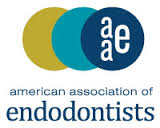Sometimes, tips to stop snoring might include changing your position when you sleep, or wearing a nasal strip to try keep your sinuses open. But for patients with obstructive sleep apnea (OSA), such tips don’t always work. The good news is that your dentist can likely help you treat sleep apnea with a comfortable, custom-made oral appliance. Even better news; there are tips that can help you reduce sleep apnea episodes and your risks of losing sleep to the condition.
Changes that Can Help with OSA
- Exercise regularly – there are several aspects of physical fitness that can relate to your risks of sleep apnea. For instance, being overweight or obese can significantly increase the risks of oral tissues clogging the airway and causing you to stop breathing. Also, a regular exercise routine, particularly aerobics, can significantly improve the quality of your sleep.
- Stick to a sleep schedule – in addition to sleep apnea treatment, such as a custom oral appliance, be sure to stick to a regular sleep schedule every night. Go to sleep and wake up at the same time every night and morning. Also, create a relaxing bedtime routine, such as taking a hot shower and reading a book in low light, to program your body to prepare for sleep on time.
- Avoid caffeine and alcohol before bed – drinking caffeine before be might be an obvious one, but many people believe a nightcap can help them sleep better. The truth is that alcohol consumption can cause your oral tissues and muscles to relax too much and collapse into your airway, increasing your risks of snoring and sleep apnea episodes.










